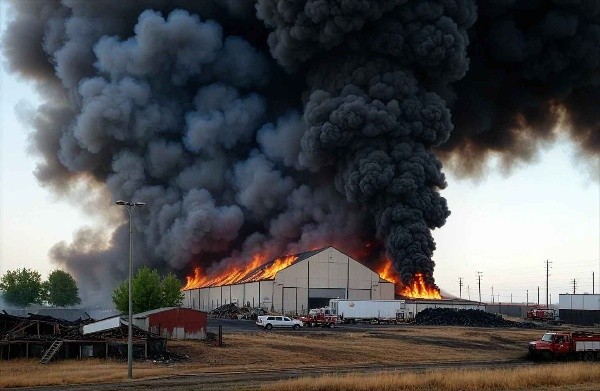Iran’s Plan to Strike Back Against the U.S.
Iran’s Military Preparations Following U.S. Attacks
Loading...

Attacks on western Yemen come a day after Houthis say they fired a missile at Ben Gurion International Airport near Tel Aviv.
Escalation of Regional Tensions
In a significant escalation of military actions in the Middle East, the Israeli army has launched a series of air raids targeting Houthi positions in Yemen. This development comes on the heels of a missile attack claimed by the Houthis against Ben Gurion International Airport near Tel Aviv, raising concerns about a broader regional conflict amid ongoing violence in Gaza and Lebanon.
Details of the Airstrikes
On Sunday, the Israeli military confirmed that it deployed dozens of aircraft, including fighter jets, to strike key Houthi facilities in the western Yemeni ports of Ras Isa and Hodeidah. According to reports from Houthi-affiliated Al Masirah TV, the airstrikes resulted in the deaths of at least four individuals, including one port worker and three electrical engineers. The attacks also led to widespread power outages across Hodeidah, affecting daily life for many residents.
The Israeli military's statement emphasized that these operations were part of a broader strategy to counter threats posed by the Houthis, who have been increasingly aggressive in their military actions against Israel. The Houthis have launched numerous drones and missiles targeting Israeli interests since late last year, framing their actions as solidarity with Palestinians amid the ongoing conflict in Gaza.
Houthi Missile Threats
The timing of the Israeli airstrikes is particularly notable, as they followed a Houthi announcement that they had successfully fired a ballistic missile at Ben Gurion International Airport. This missile strike, which reportedly penetrated Israeli air defenses, caused fires and triggered air raid sirens, prompting panic among residents in the vicinity of the airport. The Houthis have claimed that their missile capabilities have advanced significantly, with recent reports indicating they reached central Israel with a hypersonic missile.
Iran's Role and Regional Implications
The Israeli military has accused the Houthis of operating under Iranian direction and funding, collaborating with Iraqi militias to undermine regional stability and threaten Israel. This assertion highlights the complex web of alliances and enmities in the region, where Iran's influence continues to grow amid ongoing conflicts.
In response to the Israeli airstrikes, Iran's Foreign Ministry condemned the attacks, labeling them "inhumane" and accusing the United States of complicity in Israel's military actions. The Iranian spokesperson, Nasser Kanaani, criticized the strikes, which sent large plumes of smoke into the sky, further escalating tensions in an already volatile region.
Broader Context of Conflict
The air raids on Yemen coincide with Israel's ongoing military operations in Lebanon, where recent attacks have led to the displacement of nearly one million people. The situation has been exacerbated by the Houthis' expressions of solidarity with Hezbollah, particularly following the reported killing of Hezbollah chief Hassan Nasrallah in an Israeli strike on a civilian area in southern Beirut.
As the conflict continues to unfold, the Houthis have called for an end to Israeli assaults on Lebanon, indicating a potential for further escalation in hostilities across the region. The interconnected nature of these conflicts underscores the precarious balance of power in the Middle East, where actions in one country can have far-reaching implications for neighboring states.
Conclusion
The recent Israeli airstrikes on Houthi targets in Yemen mark a significant escalation in the ongoing regional conflict, highlighting the complex interplay of military actions, political alliances, and humanitarian crises. As tensions rise, the potential for a wider conflict looms, with implications that could reverberate throughout the Middle East and beyond.
Editor
Iran’s Military Preparations Following U.S. Attacks
Troops remain in five strategic locations, raising fears of renewed tensions and long-term occupation.
Opposition forces have taken control of the capital after a significant offensive. Here is how it unravelled.
